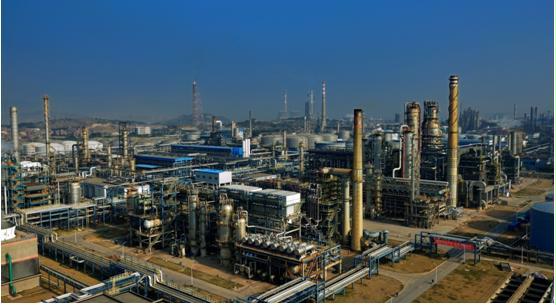FREP’s 1st Batch of GB IV Standard Compliant Gasoline Put onto Market
On December 11, 2013, FREP put 3,000t of its 1st batch of gasoline compliant with GB IV standard onto Fujian market to provide its support for building Fujian into a beautiful place with “lovely rivers, blue sky, and green land and mountains”.
This kind of gasoline is compliant with GB IV standard, which is equivalent to Euro IV standard, can satisfy requirement specified by GB V standard. FREP’s S-Zorb plant is producer of this product, which can provide over 1 million tons of low sulfur clean gasoline products to Fujian and markets in coastal regions of south east China.
With requirements for environmental protection getting more demanding, the new mogas standard has specified strict limits for sulfur content. Currently GB III standard requires sulfur emission to be ≯150ppm. On January 1, 2014, GB IV emission standard will be implemented, which requires sulfur content to be ≯50ppm and GB V emission standard will possibly further cut the emission to below 10ppm.
After 13 months’construction, FREP’ S-Zorb plant was commissioned and put in operation in a one-off way on Dec.8. This plant consists of four units, including feedstock and desulfurization unit, adsorbent regeneration unit, adsorbent circulation unit and product stabilization unit. Adopting licensed S-Zorb technology, this plant desulfurizes gasoline by utilizing absorption principle, with which sulfur atoms inside sulfocompound selectively are absorbed by adsorbents to remove sulfur, significantly reduce sulfocompound inside gasoline and improve gasoline quality. Compared hydrogenation desulfurization technology, this technology can remove sulfurs of gasoline products to below 10ppm and has the advantages of high desulfurization rate, low loss of octane number and cheap operating cost.
In the future, gasoline products produced and exported by FREP must all meet GB IV standard and higher ones to “supply quality gasoline”to car mates, provide more fine resources and reduce environmental pollution.




